Why Puzzle Games Are the Ultimate Brain Training Tool
But what is it about puzzle games that makes them so effective at keeping our minds in shape? In this article, we’ll dive deep into the world of puzzle games, exploring their benefits for cognitive development, how they improve specific mental skills, and why they should be a staple in everyone’s daily routine.
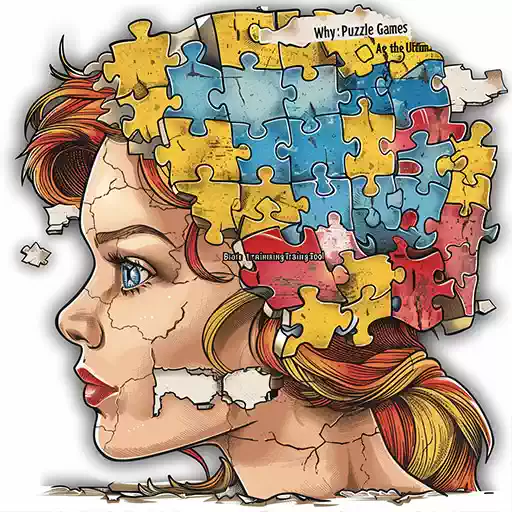
The Rise of Puzzle Games in Brain Training
You might have noticed that puzzle games have become wildly popular in recent years. From classics like Tetris and Bejeweled to modern hits like Candy Crush and The Room, puzzle games have taken the gaming world by storm. And it’s not just because they’re fun—they’re also good for your brain.1.1 A Brief History of Puzzle Games
Puzzle games have been around for centuries, long before video games even existed. Think about classic games like chess, the Rubik’s Cube, or even jigsaw puzzles. These games challenge us to think critically, spot patterns, and solve problems—all of which are key skills for cognitive growth. When video games came onto the scene, puzzle games naturally evolved into a more interactive, digital form.In the early days of gaming, puzzle games like Tetris demonstrated the potential for games to challenge our brains while entertaining us. Players had to think fast, plan ahead, and make decisions under pressure. These early puzzle games set the foundation for what would eventually become one of the most loved genres in modern gaming.
1.2 The Science Behind Brain Training
You’ve probably heard the term "brain training" thrown around a lot, but what does it really mean? Brain training refers to activities that engage and challenge the brain in a way that enhances cognitive function. Puzzle games, in particular, are known to stimulate multiple areas of the brain, improving memory, spatial reasoning, and problem-solving skills.Studies have shown that regularly playing puzzle games can lead to improved cognitive function, particularly in areas like attention span, working memory, and visual-spatial skills. Essentially, puzzle games act like a workout for your brain, much like how lifting weights strengthens your muscles. And just like physical fitness, consistency is key to reaping the benefits.
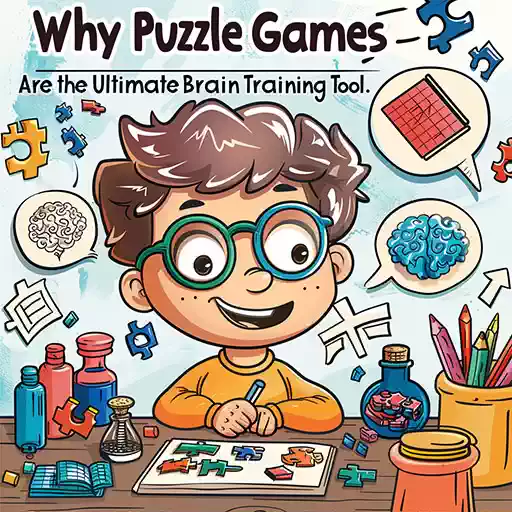
How Puzzle Games Boost Cognitive Skills
So, what cognitive skills do puzzle games help you develop? Let’s break down the key areas where puzzle games shine in terms of brain training.2.1 Problem-Solving Skills
At their core, puzzle games are all about problem-solving. Each puzzle presents a unique challenge that requires you to think critically and creatively to find a solution. Whether you’re figuring out how to clear a level in Candy Crush or unraveling complex puzzles in games like Portal, you’re constantly working on your ability to break down problems and devise solutions.Thinking Outside the Box
One of the best things about puzzle games is that they often encourage "outside the box" thinking. Unlike other types of games that follow linear paths, puzzles force you to look at problems from different angles, consider multiple possibilities, and think through the consequences of each action. This skill is invaluable in real life, whether you’re trying to solve a work-related issue or just figuring out how to rearrange furniture in your living room.
2.2 Memory and Concentration
Playing puzzle games can also give your memory and concentration a serious boost. Many puzzle games, like Lumosity or Elevate, are specifically designed to improve working memory—the type of memory you use to hold information in your mind while performing a task.Keeping Track of Details
In puzzle games, you’re often required to remember patterns, numbers, or sequences of actions. This forces your brain to stay engaged and focused, especially in games that get progressively more challenging. By practicing this type of mental recall, you strengthen your ability to store and retrieve information, which can translate to improvements in everyday memory functions.
2.3 Spatial Awareness and Visual-Spatial Skills
Another key area where puzzle games excel is in improving spatial awareness. Visual-spatial skills are your ability to understand, reason, and remember the spatial relationships between objects. Games like Tetris, Monument Valley, and Cut the Rope force players to think spatially, requiring you to manipulate shapes and objects in a confined space to solve the puzzle.Visualizing Solutions
Developing strong visual-spatial skills isn’t just useful in games—it’s also essential in real-world tasks like driving, reading maps, and even organizing your living space. Puzzle games can help improve your ability to visualize how different objects fit together, enhancing both your hand-eye coordination and your overall spatial reasoning.
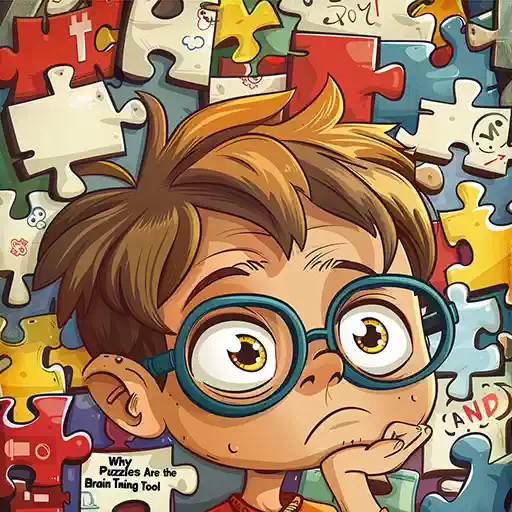
Puzzle Games and Emotional Benefits: Stress Relief and Relaxation
While we often focus on the cognitive benefits of puzzle games, it’s also worth noting their impact on mental health. Surprisingly, puzzle games can be a great way to relieve stress and promote relaxation.3.1 Entering a Flow State
Have you ever been so absorbed in a game that you lost track of time? That’s called being in a flow state—a mental state where you’re fully immersed in an activity, to the point where everything else fades away. Puzzle games are excellent for achieving flow, as they require just the right amount of challenge to keep you engaged without overwhelming you.This can be incredibly calming, as it allows your mind to focus on a single task and take a break from the stresses of everyday life. Plus, completing a difficult puzzle gives you a sense of accomplishment, which can boost your mood and overall sense of well-being.
3.2 Stress-Free Learning
One of the reasons puzzle games are so effective at brain training is that they allow you to learn in a stress-free environment. Unlike real-life problems, where failure can have serious consequences, puzzle games offer a safe space to experiment, make mistakes, and learn from them. The act of solving puzzles provides a sense of progress and achievement, which is not only satisfying but also helps to reduce anxiety.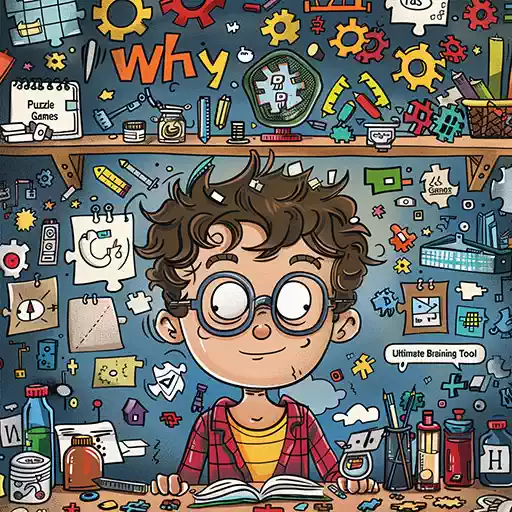
Why Puzzle Games Should Be Part of Your Routine
Now that we’ve covered the cognitive and emotional benefits, it’s clear that puzzle games are more than just a fun way to pass the time. They offer real, tangible benefits for your brain. But how can you incorporate them into your daily routine? Here are a few tips to help you make puzzle games a part of your mental fitness plan.4.1 Short but Consistent Play Sessions
You don’t need to spend hours playing puzzle games to see benefits. Even short, 10-15 minute sessions can help you sharpen your mind. Whether it’s during a coffee break, on your commute, or while winding down before bed, fitting in a few minutes of brain training each day can add up over time.4.2 Try Different Types of Puzzles
To maximize the benefits, mix things up by playing different types of puzzle games. Switch between word puzzles, logic puzzles, and visual-spatial challenges to give your brain a well-rounded workout. Variety helps keep things interesting and ensures that you’re working on multiple cognitive skills.4.3 Challenge Yourself
As with any form of training, improvement comes from pushing yourself. Don’t shy away from challenging levels or puzzles that seem difficult at first. The more you stretch your brain, the more it will grow and adapt. If you get stuck, take a break and come back later with fresh eyes. Often, the solution will reveal itself after a bit of mental rest.Conclusion: Puzzle Games Are Your Brain’s Best Friend
Puzzle games are more than just a source of entertainment—they’re an incredibly effective way to train your brain and improve your cognitive abilities. By challenging your problem-solving skills, improving memory and concentration, and enhancing spatial awareness, these games offer a fun and engaging way to keep your mind sharp.Whether you’re looking to boost your brainpower, relax after a long day, or simply enjoy a good challenge, puzzle games are the perfect companion. So why not start incorporating a few brain-training sessions into your daily routine? You’ll be doing your brain a favor, and you might just have some fun along the way.
After all, who said brain training can’t be a game?
22 November 2024
More articles
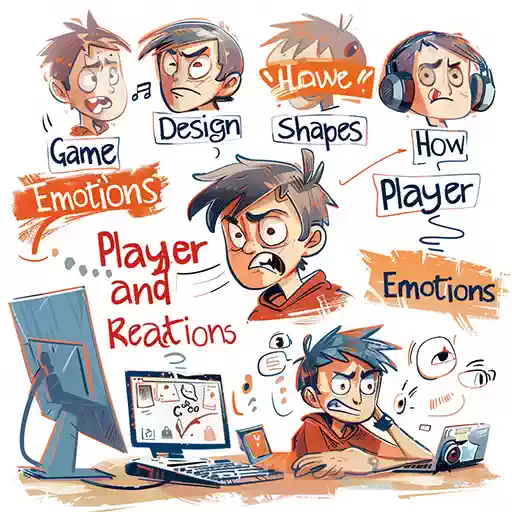
Ever wonder why certain games make your heart race, while others leave you with a deep sense of satisfaction or even sadness? It’s not just the storyline or the gameplay mechanics at work—it’s the game design itself. From the colors and sounds to the pacing and challenges, game design plays a powerful role in shaping the way we feel as we play. The right design elements can take players on an emotional rollercoaster, leaving them exhilarated, frustrated, or deeply moved.

In the world of gaming, it’s not just the immersive worlds, captivating storylines, or exhilarating gameplay that keep players coming back—it’s the sense of community that often forms around these experiences. From sharing strategies and tips to celebrating achievements and creating fan art, gaming communities have become a central aspect of modern game culture. For game developers like FOGYX, building and nurturing these communities is not just an added bonus—it’s essential to the success and longevity of our games, especially in the ever-evolving landscape of free online games.
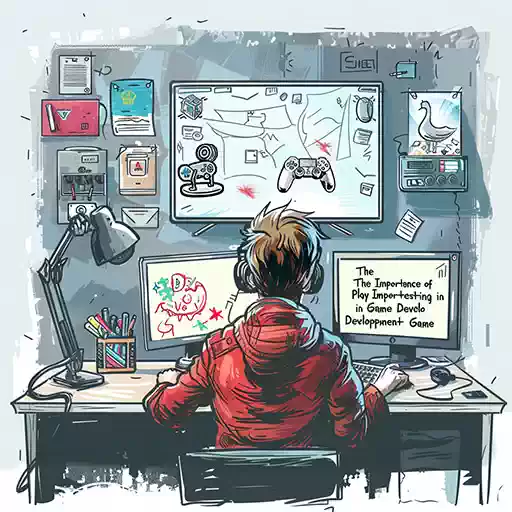
Creating a video game is an intricate process, requiring more than just creativity and coding skills. To ensure that the final product meets both the developer’s vision and the players’ expectations, one crucial step cannot be overlooked: playtesting. Whether it’s a small indie project or a massive multiplayer title, playtesting is the key to refining gameplay, finding bugs, and making sure everything runs smoothly before a game is released to the public.
all articles
